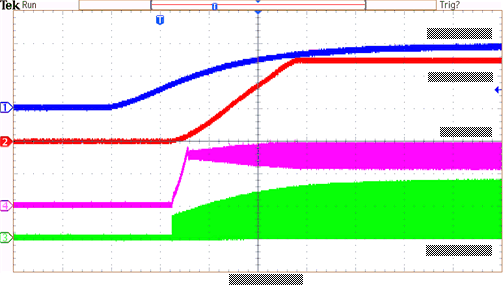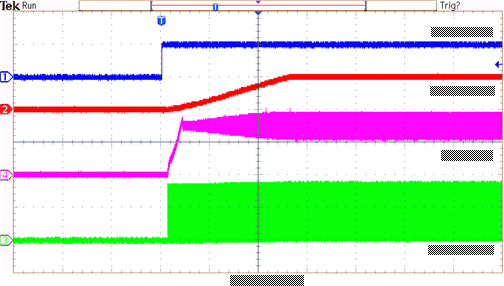SLVUBE6C November 2018 – July 2021 TPS56339
5.8 Powering Up
Figure 5-10 and Figure 5-11 show the start-up waveforms for the TPS56339EVM. In Figure 5-10, the output voltage ramps up as soon as the input voltage reaches the UVLO threshold as set by the R1 and R2 resistor divider network. In Figure 5-11, the input voltage is initially applied and the output is inhibited by using a 3.3-V logic signal between EN and GND. When the EN voltage reaches the enable-threshold voltage, the start-up sequence begins and the output voltage ramps up to the externally set value of 5 V. The input voltage for these plots is 19 V and the load current is 3 A.
 Figure 5-10 TPS56339EVM Startup Relative to VIN
Figure 5-10 TPS56339EVM Startup Relative to VIN Figure 5-11 TPS56339EVM Startup Relative to Enable
Figure 5-11 TPS56339EVM Startup Relative to Enable